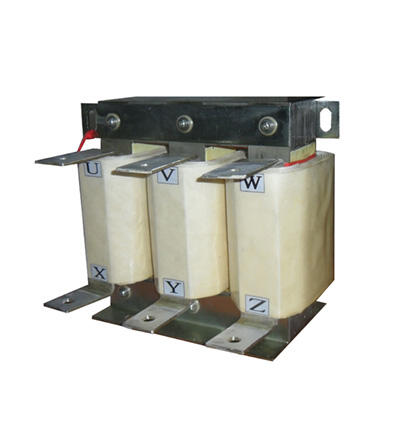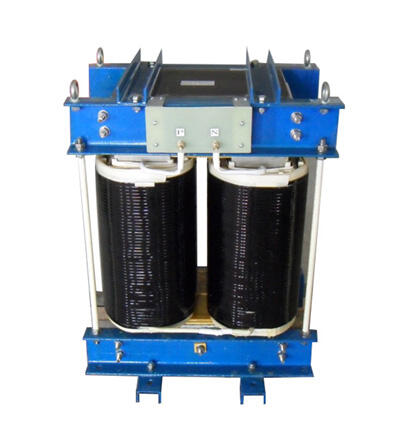Understanding Modern Electric Reactor Technology
Electric reactors represent a cornerstone of modern industrial processes, playing vital roles across numerous sectors from chemical manufacturing to power generation. These sophisticated systems harness electrical energy to facilitate controlled reactions and processes that drive innovation and efficiency in today's technological landscape. As industries evolve and environmental considerations take center stage, electric reactor applications continue to expand and diversify.
The versatility of electric reactors has led to their implementation in scenarios ranging from small-scale laboratory operations to massive industrial complexes. Their ability to precisely control reaction conditions while maintaining safety and efficiency makes them invaluable tools across multiple fields. Understanding these applications provides crucial insights into how modern industry functions and where technology is heading.
Industrial Applications and Manufacturing
Chemical Production Processes
In the chemical industry, electric reactor applications have revolutionized production methods. These systems enable precise temperature control and mixing conditions essential for synthesizing complex compounds. From pharmaceutical ingredients to specialty chemicals, electric reactors ensure consistent quality and higher yields while minimizing waste and energy consumption.
Modern chemical plants utilize various types of electric reactors, including continuous flow reactors and batch processing systems. These installations often feature advanced monitoring and control systems that maintain optimal conditions throughout the production cycle, ensuring product quality while maximizing operational efficiency.
Materials Processing and Synthesis
Electric reactor applications extend deeply into materials science and manufacturing. These systems are crucial in producing advanced materials like ceramics, polymers, and composite materials. The controlled environment within electric reactors allows for precise manipulation of material properties, resulting in products with specific characteristics required for specialized applications.
The semiconductor industry, in particular, relies heavily on electric reactor technology for manufacturing high-purity materials essential in electronic components. These reactors maintain the ultra-clean conditions and exact specifications necessary for producing microchips and other sophisticated electronic elements.
Energy Sector Implementation
Power Generation Systems
Within the energy sector, electric reactor applications play a fundamental role in power generation and distribution. Modern power plants utilize these systems for various processes, including steam generation, waste heat recovery, and emissions control. The integration of electric reactors has significantly improved the efficiency and environmental performance of power generation facilities.
Advanced reactor designs are also being developed for renewable energy applications, particularly in thermal energy storage systems. These innovations help address the intermittent nature of renewable energy sources by providing reliable energy storage and conversion solutions.
Grid Stability and Power Quality
Electric reactors serve crucial functions in maintaining power grid stability and quality. They help regulate voltage levels, manage power factor correction, and mitigate harmonic distortion in electrical systems. These applications ensure reliable power delivery while protecting sensitive equipment from electrical disturbances.
The growing complexity of power grids, especially with the integration of renewable energy sources, has increased the importance of electric reactor applications in grid management. Modern smart grid systems rely on these technologies to maintain stable operation under varying load conditions.

Environmental and Waste Management
Pollution Control Systems
Environmental protection has become a primary application area for electric reactor technology. These systems are essential in treating industrial emissions, wastewater, and other pollutants. Advanced oxidation processes and plasma-based treatment systems utilize electric reactors to break down harmful compounds into safer substances.
Industrial facilities increasingly implement electric reactor applications for emissions control, particularly in reducing nitrogen oxides, sulfur compounds, and particulate matter. These systems help industries comply with environmental regulations while maintaining operational efficiency.
Waste Treatment and Recycling
In waste management, electric reactor applications facilitate the treatment and recycling of various materials. These systems can process hazardous waste, convert organic materials into useful products, and recover valuable resources from waste streams. The controlled conditions within electric reactors enable efficient and environmentally sound waste processing methods.
Modern recycling facilities utilize specialized electric reactors for materials recovery and transformation. These applications help reduce landfill waste while creating valuable secondary raw materials for industrial use.
Research and Development Applications
Laboratory Scale Operations
Research institutions and laboratories employ electric reactor applications for experimental work and process development. These smaller-scale systems allow scientists to study reaction mechanisms, test new materials, and optimize processing conditions before scaling up to industrial production.
Advanced research facilities use specialized electric reactors for investigating novel materials and processes. These applications often incorporate sophisticated analytical tools and control systems for detailed study of chemical and physical phenomena.
Pilot Plant Testing
Before full-scale industrial implementation, electric reactor applications are thoroughly tested in pilot plant facilities. These intermediate-scale operations help validate process designs, identify potential issues, and optimize operating parameters. Pilot plant testing is crucial for ensuring successful technology transfer from laboratory to industrial scale.
Modern pilot facilities often feature modular electric reactor systems that can be configured for different processes and applications. This flexibility allows for efficient evaluation of various technologies and operating conditions.
Frequently Asked Questions
What makes electric reactors different from conventional chemical reactors?
Electric reactors distinguish themselves through their use of electrical energy to drive reactions and processes, offering precise control over temperature, pressure, and reaction conditions. Unlike conventional chemical reactors that rely on external heating or cooling systems, electric reactors can achieve rapid temperature changes and maintain uniform conditions throughout the reaction volume.
How do electric reactors contribute to sustainability goals?
Electric reactor applications support sustainability by enabling more efficient use of resources, reducing waste generation, and facilitating cleaner production processes. They can be powered by renewable energy sources and often require less energy overall compared to traditional processing methods. Additionally, their precise control capabilities help minimize the use of raw materials and reduce environmental impact.
What are the safety considerations for electric reactor operations?
Safety in electric reactor operations requires careful attention to electrical isolation, temperature monitoring, pressure control, and emergency shutdown systems. Modern electric reactors incorporate multiple safety features, including redundant control systems, automatic shutoffs, and containment measures. Proper training and maintenance protocols are essential for safe operation.

